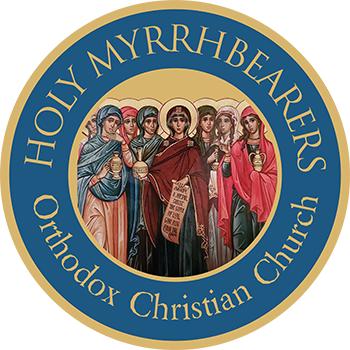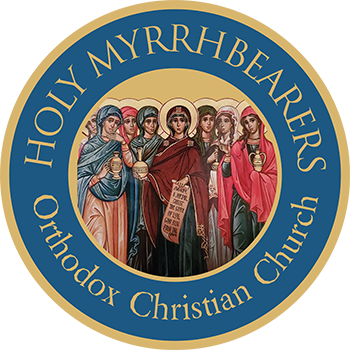November 14, 2017

“The Divine Liturgy, what a splendor, indeed! Man has been honored by God in such a way that He Himself came down to earth with His Angelic Orders, every time there is a Liturgy, in order to nurture man with His Most Holy Body and His Most Precious Blood! For He has given us everything; is there anything physical or spiritual, perishable or everlasting that has not been offered to us? None! Is there anything superior to His Most Holy Body and Blood, which is given to us on a daily basis? There is certainly not. God has enabled man, who is of soil and dirt, to serve the Divine Liturgy. So Priceless is the Divine Love that just a tiny drop exceeds any global, physical and secular love.
”From Experiences During the Divine Liturgy, by Protopresbyter Stephanos K. Anagnostopoulos.
St. Ignatius of Antioch states,
“Take note of those who hold heterodox opinions on the grace of Jesus Christ which has come to us, and see how contrary their opinions are to the mind of God…They abstain from the Eucharist and from prayer because they do not confess that the Eucharist is the flesh of our Savior Jesus Christ, flesh which suffered for our sins and which that Father, in his goodness, raised up again. They who deny the gift of God are perishing in their disputes” (Letter to the Smyrnaeans 6:2–7:1 [A.D. 110]).Saint John of Kronstadt, in ‘My Life in Christ’, states;
“I am with you always, even unto the end of the world.” So it is, Master: Thou art with us throughout all days; we are not a single day without Thee, and we cannot live without Thy presence near us! Thou art with us especially in the Sacrament of the Body and Blood. O, how truly and essentially art Thou present in the Holy Mysteries! Thou our Lord in every liturgy takest upon Thyself a vile body similar to ours in every respect save that of sin, and feedest us with Thy life-giving flesh. Through the Sacrament Thou art wholly with us, and Thy Flesh is united to our flesh, whilst Thy Spirit is united to our soul; and we feel this life-giving, most peaceful, most sweet union, we feel that by joining ourselves to Thee in the Holy Eucharist we become one spirit with Thee as it is said: “He that is joined unto the Lord is one spirit.” We become like Thee, good, meek and lowly, as Thou hast said of Thyself: “I am meek and lowly in heart.
”True, it is that often our evil and blind flesh, or the prince of this world, who dwells in our simple flesh, whispers to us that the Sacrament contains only bread and wine, and not the very Body and Blood of our Lord Himself, and sends sight, taste, and feeling as his crafty witnesses to this. But we do not allow ourselves to listen to these slanders and reason thus. To Thee, Lord, everything is possible: Thou createst the flesh of men, animals, fishes, birds, reptiles, of all creatures, is it possible that for Thyself, Thou “Who art everywhere, and fillest all things”, wilt not create flesh? Not only this, Thou changest a dead substance into a living one–as, for instance, Moses’s rod into the serpent–and there is nothing impossible for Thee. Canst Thou not, therefore, create flesh for Thyself out of bread and wine, which are so near to our flesh, being used for food and drink, and thus being converted into our own flesh and blood? Thou dost not test our faith more than it can bear, for Thou dost not transubstantiate a lump of earth into Thy most-pure Body, but white bread, soft, clean, pleasant to the taste; and Thou doest not create Thy Blood from water, but from wine, called in Holy Scripture the blood of the grape, corresponding in color to that of blood, agreeable to the taste, and rejoicing the heart of man. Thou knowest our infirmity, the weakness of our faith, and therefore Thou condescendest to employ in the Sacrament of Thy Body and Blood the substances most suitable to them. Let us, therefore, firmly believe that under the form of bread and wine we communicate of the true Body and of the true Blood of our Lord; that in the mystery of Holy Communion, Jesus Christ Himself will dwell with us “always, even unto the end of the world.”
and
“The Lord might have made the whole world, heaven and earth, into His own body; or instead of creating the world, He might have created for Himself a temple for His body; and it is only on your account that He deigned to create to Himself a Body similar to your own, in order to save you, and having created the world from nothing, He has also created out of a small part of it His Body to give life to you, leaving the world to remain as He created it. O goodness and mercy of God! “We are members of His Body” through the communion of His life-giving Mysteries!”St John of Kronstadt received the Holy Eucharist on a Daily basis. This is how he started his day, with Christ! The partaking of His Body and Blood, is that important to our physical, emotional, and spiritual welfare.
Comments will be approved before showing up.

